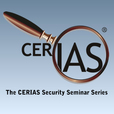Aritra Mitra, "A New Approach to Distributed Hypothesis Testing and Non-Bayesian Learning: Improved Learning Rate and Byzantine Resilience"

Summary: Consider a scenario where a group of agents, each receiving partially informative private signals, aim to learn the true underlying state of the world that explains their collective observations. These agents might represent a group of individuals interacting over a social network, a team of autonomous robots tasked with detection, or even a network of processors trying to collectively solve a statistical inference problem. To enable such agents to identify the truth from a finite set of hypotheses, we propose a distributed learning rule that differs fundamentally from existing approaches, in that it does not employ any form of ``belief-averaging". Instead, agents update their beliefs based on a min-rule. Under standard assumptions on the observation model and the network structure, we establish that each agent learns the truth asymptotically almost surely. As our main contribution, we prove that with probability 1, each false hypothesis is ruled out by every agent exponentially fast, at a network-independent rate that strictly improves upon existing rates. We then consider a scenario where certain agents do not behave as expected, and deliberately try to spread misinformation. Capturing such misbehavior via the Byzantine adversary model, we develop a computationally-efficient variant of our learning rule that provably allows every regular agent to learn the truth exponentially fast with probability 1.
